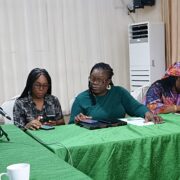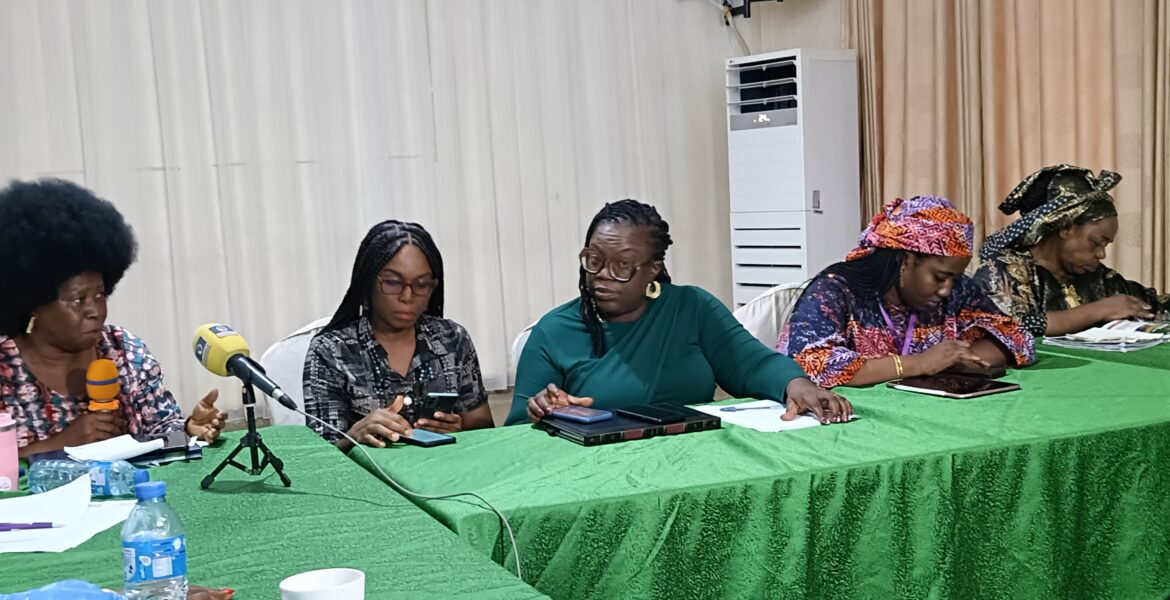A coalition of women-focused Civil Society Organizations (CSO’s) has voiced strong opposition to the proposed repeal of the Violence Against Persons Prohibition (VAPP) Act, 2024.

The coalition, including the Women Advocate Research and Documentation Centre (WARDC), The Center for Human Rights, Womanifesto, Women At Risk Foundation (WARIF), Anti-Sexual Violence Lead (ASVIOL) Support Initiative, Dorothy Njemanze Foundation (DNF), Tech Her, and others, recently hosted a webinar to discuss the proposed repeal of the Violence Against Persons Prohibition (VAPP) Bill, 2024.
The webinar called for amendments to the existing law rather than a complete repeal to protect the progress made in addressing gender-based violence in the country.
VAPP Act: A Key Legal Tool at Risk
Passed in 2015, the VAPP Act is a comprehensive legal framework aimed at tackling various forms of violence, particularly those affecting women and girls. It has been instrumental in addressing domestic abuse, sexual harassment, and economic violence. The proposed repeal of this law has alarmed many women’s rights groups, who argue that its removal could erode the protection of vulnerable populations.
At the webinar, Emmanuella Azu, Acting Executive Director of WARDC, emphasized the importance of the Act, stating, “The VAPP Act has given countless women and girls a legal avenue to seek justice against their abusers. Repealing it would be a major setback.”
Experts Call for Targeted Amendments
Dr. Abiola Akiyode-Afolabi, Director of the Center for Human Rights and Convener of Womanifesto, highlighted the importance of the VAPP Act as a pioneering legal tool. She acknowledged that while the Act has its flaws, such as minor drafting errors, these could be addressed through targeted amendments rather than a full repeal. She described the Act as a “lifeline” for many survivors of violence and urged its protection.
As the lead speaker, Dr. Akiyode-Afolabi called for caution regarding defilement and the introduction of new punishments for rape, while supporting a review of the Act concerning fines and convictions, which were previously low.
“We welcome the review in the areas of fines and convictions, which were drastically low before now. However, we question the recommendations in some areas, like defilement and rape offenses, and the stratification of years and punishments.
“A person who defiles a child should not have a lower sentence. It’s unreasonable to create a law like that—it gives pedophiles a route to escape and encourages abuse. Such a person deserves nothing short of a life sentence and the maximum punishment,” she stressed.
Similarly, Dr. Kemi DaSilva, founder of WARIF, pointed out that the Act could be improved through specific amendments, including stronger enforcement mechanisms and support services for survivors. She cautioned that repealing the Act would dismantle the progress made in combating gender-based violence in Nigeria.
Concerns Over Repeal’s Impact on States
The potential ripple effect of a federal repeal was also discussed, with Hassana Maina, Anti-Sexual Violence Lead at ASVIOL, expressing concern that it could influence states to undo their localized versions of the VAPP Act. She criticized the lack of transparency in the legislative process, calling for more public input and dialogue on the matter.
Dorothy Njemanze, Executive Director of the Dorothy Njemanze Foundation, spoke from a personal perspective, emphasizing the importance of amplifying data on the benefits of the VAPP Act for survivors of violence. She argued that repealing the law would silence the voices of countless women who have fought against their abusers.
“I am a survivor of violence. I deal with survivors of violence. And the thought of repealing such an act feels like a threat to our lives,” Njemanze stated.
She called for more programs and educational materials to be made available to the grassroots to underscore the importance of the VAPP Act and hold lawmakers accountable.
“The VAPP Act is not just a piece of legislation; it’s a shield for survivors, offering hope and a path to healing. Taking that away would be a betrayal to every survivor who has trusted in the system to protect them,” she asserted.
In her remarks, Ene Obi, a gender activist, highlighted the dangers of the silent progression of the repeal bill through two readings in the Senate. “This is unbelievable. Silently. Something they worked on for nearly 15 years before the Act was passed,” Obi said.
Panelists also emphasized the success of the VAPP Act, which has been adopted by 34 of Nigeria’s 36 states. They warned that repealing it would send a dangerous signal about the government’s commitment to protecting women’s rights.
A Call for Action
The women’s groups urged stakeholders to remain vigilant and advocate for amendments rather than a repeal of the VAPP Act. They called on lawmakers to prioritize the safety and well-being of women and girls and to preserve the gains made in the fight against gender-based violence.

